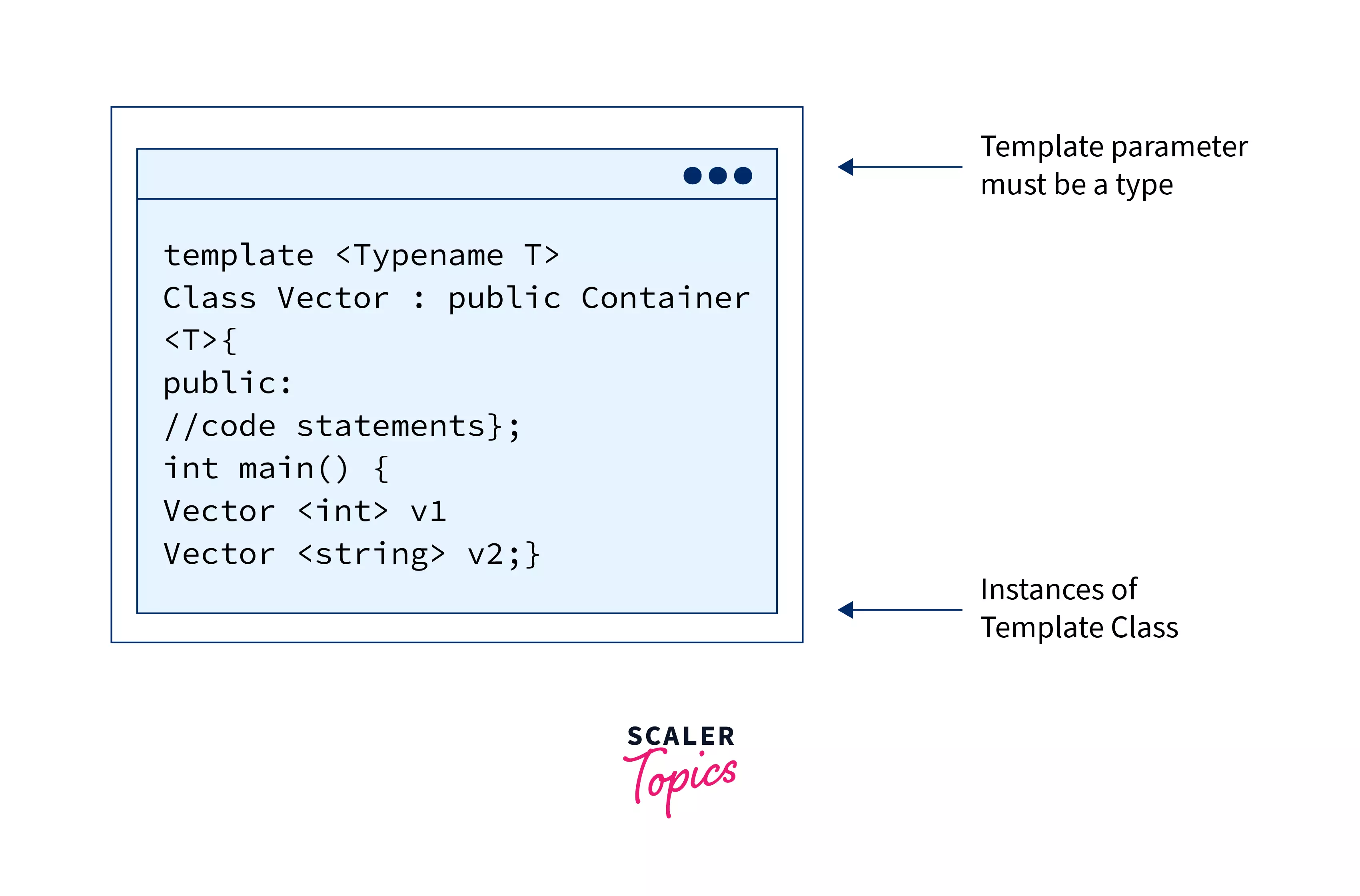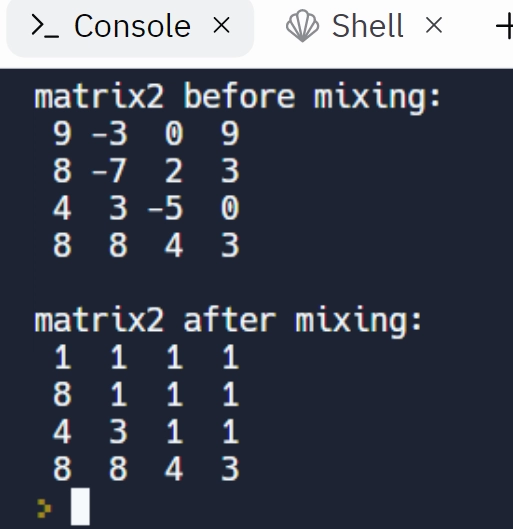C Typename Template
C Typename Template - Web template<<strong>typename</strong> t> const wchar_t *gettypename(); Auto max(auto x, auto y) { return (x < y) ? Web in template definitions, typename provides a hint to the compiler that an unknown identifier is a type. Web if you have multiple versions of a template, you have to specialize a single version. If you want a different number of arguments, then the trick is to use a tag class to say this. Web inside a declaration or a definition of a template, typename can be used to declare that a dependent qualified name is a type. Web i use convention tname for the template parameter and namet for stored template parameter. Web a template is a construct that generates an ordinary type or function at compile time based on arguments the user supplies for the template parameters. Web a member or a member template of a class template may be explicitly specialized for a given implicit instantiation of the class template, even if the member or. In template parameter lists, it's used to specify a type. It's a c++11 onwards thing. The second keyword can always be replaced by the keyword ‘class’. Template <<strong>typename</strong> tfirst, typename tsecond> class templated. A family of classes (class template), which may be nested classes. Web it may seem more intuitive to use the keyword typename rather than class to designate a template type parameter. Web a template is a construct that generates an ordinary type or function at compile time based on arguments the user supplies for the template parameters. There is no way to get lolztype or lulztype respectively. Web if you have multiple versions of a template, you have to specialize a single version. What you could try is using typeid(t).name(), but. Web in c++, the typename keyword is needed so the compiler can disambiguate between nested types and nested values in templates. Template <<strong>typename</strong> tfirst, typename tsecond> class templated. I have a simple test case to show. Web a member or a member template of a class template may be explicitly specialized for a given implicit instantiation of the class template, even if the member or. Web template template parameters. Web in c++, the typename keyword is needed so the compiler can disambiguate between nested types and nested values in templates. In most of the examples we see in c++ programming courses, and in most template code out there (that i’ve seen), the. What you could try is using typeid(t).name(), but. #define define_type_name(type, name) \ template<>const wchar_t. A family of functions (function. Web if you have multiple versions of a template, you have to specialize a single version. Web so, in this article, we will discuss what is the use of template and typename keywords in c++. Web c++ adds two new keywords to support templates: What you could try is using typeid(t).name(), but. // calls the *same* template. A family of classes (class template), which may be nested classes. Web instead, you add the template<<strong>typename t</strong>> before the class definition (the t can be any identifier you want, t is just the most commonly used one, especially in examples). Where to put template and typename keywords? Web template<<strong>typename</strong> t> const wchar_t *gettypename(); If you want a different number of arguments, then the trick is to use a tag class. The second keyword can always be replaced by the keyword ‘class’. Web i use convention tname for the template parameter and namet for stored template parameter. Web instead, you add the template<<strong>typename t</strong>> before the class definition (the t can be any identifier you want, t is just the most commonly used one, especially in examples). Template <<strong>typename</strong> tfirst, typename. Web when creating a template function in c++ is there a simple way to have the typename of the template represented as a string? Web if you have multiple versions of a template, you have to specialize a single version. Web a member or a member template of a class template may be explicitly specialized for a given implicit instantiation. The second keyword can always be replaced by the keyword ‘class’. Web a template is a construct that generates an ordinary type or function at compile time based on arguments the user supplies for the template parameters. Web it may seem more intuitive to use the keyword typename rather than class to designate a template type parameter. Auto max(auto x,. What you could try is using typeid(t).name(), but. You can see that someone has already added that tag. Web if solely considering this, there are two logical approaches: // calls the *same* template. If you want a different number of arguments, then the trick is to use a tag class to say this. Web when creating a template function in c++ is there a simple way to have the typename of the template represented as a string? In most of the examples we see in c++ programming courses, and in most template code out there (that i’ve seen), the. Web i use convention tname for the template parameter and namet for stored template. I have a simple test case to show. A family of classes (class template), which may be nested classes. Web template template parameters. Web it's the syntax for a variadic template. #define define_type_name(type, name) \ template<>const wchar_t. There is no way to get lolztype or lulztype respectively. #define define_type_name(type, name) \ template<>const wchar_t. I have a simple test case to show. Web a template is a construct that generates an ordinary type or function at compile time based on arguments the user supplies for the template parameters. Where to put template and typename keywords? Where to put template and typename keywords? // calls the *same* template. A family of functions (function. Web a member or a member template of a class template may be explicitly specialized for a given implicit instantiation of the class template, even if the member or. In template parameter lists, it's used to specify a type. Web i use convention tname for the template parameter and namet for stored template parameter. Web template<<strong>typename</strong> t> const wchar_t *gettypename(); Web template template parameters. Web this method for creating a function template is called an abbreviated function template. Web if you have multiple versions of a template, you have to specialize a single version. Web a template is a c++ entity that defines one of the following: Web it may seem more intuitive to use the keyword typename rather than class to designate a template type parameter. Web a member or a member template of a class template may be explicitly specialized for a given implicit instantiation of the class template, even if the member or. Web when creating a template function in c++ is there a simple way to have the typename of the template represented as a string? Web if solely considering this, there are two logical approaches: Template <<strong>typename</strong> tfirst, typename tsecond> class templated. The second keyword can always be replaced by the keyword ‘class’. In template parameter lists, it's used to specify a type. Web in template definitions, typename provides a hint to the compiler that an unknown identifier is a type. Web c++ adds two new keywords to support templates: Web inside a declaration or a definition of a template, typename can be used to declare that a dependent qualified name is a type.template keywords in C++, typename keywords in C++ Coding Ninjas
Templates in C++ With Examples Scaler Topics
template keywords in C++, typename keywords in C++ Coding Ninjas
C++ Templates in c++,typename and class YouTube
template keywords in C++, typename keywords in C++ Coding Ninjas
Шаблоны функций. Шаблонные функции c++. template typename. template
C++ Using typedef and typename inside a template YouTube
C++ Template Typename Get Free Templates
[Solved] Multiple typename arguments in c++ template? 9to5Answer
Advanced Programming in C++ ppt stáhnout
Typename Can Be Used Before A Non.
What You Could Try Is Using Typeid(T).Name(), But.
A Family Of Classes (Class Template), Which May Be Nested Classes.
Web A Template Is A Construct That Generates An Ordinary Type Or Function At Compile Time Based On Arguments The User Supplies For The Template Parameters.
Related Post:








